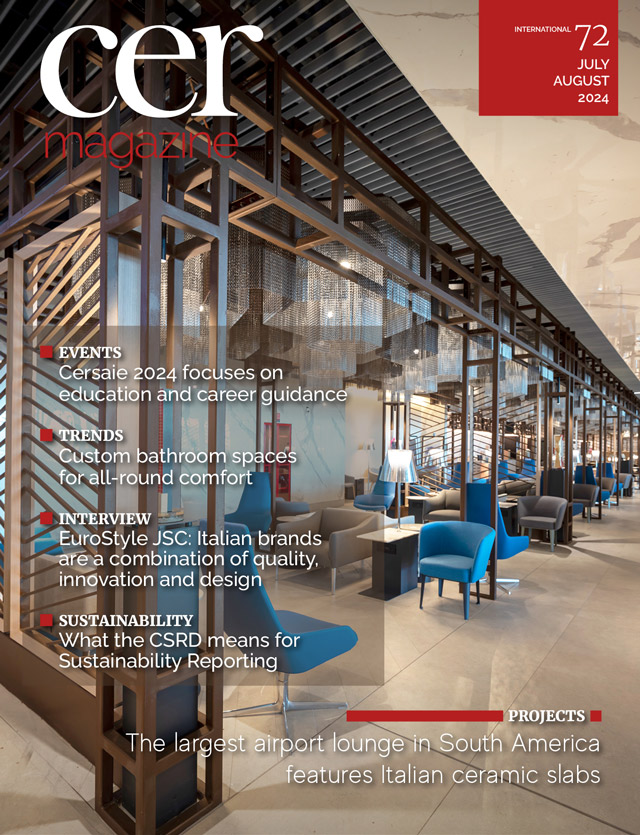(July 2024) The latest intervention by European legislators in the field of sustainability reporting is Directive (EU) 2022/2464, known as the Corporate Sustainability Reporting Directive (CSRD). This directive, published in the Official Journal of the European Union on 16 December 2022, is currently being transposed into national laws.
The primary aim of the CSRD is to promote transparency by obliging companies to report on the environmental, social and governance (ESG) impacts of their activities, thus facilitating the transition towards a sustainable economic and social system.
With the introduction of the CSRD, what was previously a voluntary sustainability report will now become mandatory for a wide range of organisations, including many ceramic companies that were previously exempt from non-financial disclosure (NFD) obligations.
The CSRD imposes substantial new obligations on companies, transforming voluntary, informally structured communications into mandatory, standardised reports that extend to the value chain.
The Sustainability Report serves to inform a company’s stakeholders about its commitment to environmental, social and governance (ESG) issues for the relevant financial year.
It acts as both a retrospective document that details the activities performed and results achieved in relation to ESG aspects and as a forward-looking document that outlines future commitments and sustainable development goals.
It not only describes the company’s economic and financial performance but also explains how it manages significant sustainability aspects in terms of principles, values, policies and management systems.
To determine the ESG-related information required in the sustainability report, companies must conduct a double materiality assessment that considers both an inside-out perspective (assessing the sustainability impacts generated by the company externally) and an outside-in perspective (evaluating how external sustainability factors impact the company’s economic and financial performance). The report must include information on the company’s entire value chain, encompassing both upstream and downstream activities.
The sustainability report must be incorporated into a designated section of the directors’ report within the statutory financial statements to facilitate an interchange between financial and sustainability data, and it is subject to audit.
Furthermore, it must be prepared in accordance with the new European Sustainability Reporting Standards (ESRS) and made available in a machine-readable digital format (XHTML).
Among the companies that have published their sustainability report are (list updated to end of September 2025):
Ceramica Sant’Agostino
Cerdomus
COEM
Dolomite Franchi
Florim
Gresmalt
Gruppo Romani
Ideal Standard
Industrie Bitossi
Italcer
Italgraniti
La Fenice
Lamberti
Laminam
Mapei
Marazzi
Panariagroup
Saturnia
Terratinta Group
Wienerberger




 Architects
Architects
 Construction firms
Construction firms
 Dealers
Dealers


